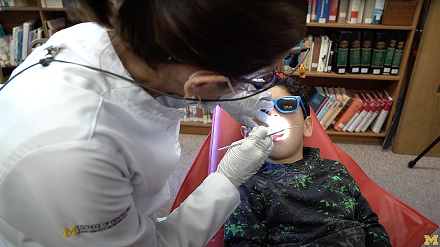Mehmet Hepgur, M.D.
March 21, 2023 – With a significant increase in colorectal cancer diagnoses in people under 55, experts are recommending that certain patients get screened at younger ages to aid early detection. In honor of March as National Colorectal Cancer Awareness Month, caregivers at Broward Health are reminding patients that cancer screenings save lives.
The American Cancer Society found the number of people diagnosed with colon cancer age 55 or younger has nearly doubled, jumping from 11% in 1995 to 20% in 2019. The cause for the increase is unclear, but experts believe contributing factors could include diets that are rich in processed meats and low in fiber, obesity, alcohol consumption and sedentary lifestyles.
In 2021, the Centers for Disease Control and Prevention’s U.S. Preventive Services Task Force updated its guidelines for colorectal cancer, lowering the recommended age to begin screening from 50 to 45 for those at average risk.
“Regular screenings are very important because if polyps are found, they can be removed before they turn into cancer,” said Mehmet Hepgur, M.D., hematologist/oncologist with the Broward Health Physician Group. “When colorectal cancer is diagnosed early on, survival rates are significantly higher.”
The most common causes of colorectal diseases are diet, family history and lifestyle. Broward Health offers screening and surveillance programs that prioritize the prevention and early detection of colorectal cancer, including genetic counseling and testing to help assess a patient’s family history and predisposed risks.
Recognizing and Treating Colorectal Conditions
Screening tests, such as a colonoscopy, flexible sigmoidoscopy or virtual colonoscopy (a special type of CT scan of the colon and rectum), are recommended for patients who are not experiencing any symptoms. While stool-based DNA tests look for signs of cancer, visual screenings like colonoscopies can find cancer as well as colorectal polyps, which are usually harmless but could develop into cancer over time.
Diagnostic tests are provided when patients are experiencing symptoms of colorectal cancer, such as blood in the stool, diarrhea, constipation, chronic abdominal pain, aches, cramps or unexplained weight loss.
Early Detection and Prevention
Without screenings, potentially life-saving diagnoses may be missed, which could lead to less favorable long-term outcomes. Treatments work best when colorectal cancer is detected early.
While early detection is critically important, there are additional steps to take to increase the chances of remaining cancer-free, including a healthy diet, regular exercise, avoiding alcohol and smoking and knowing the family’s medical history. According to the CDC, a family health history of colorectal cancer increases the risk of colorectal cancer.
For more information on Broward Health’s comprehensive cancer services, visit BrowardHealth.org/BeatCancer.



























